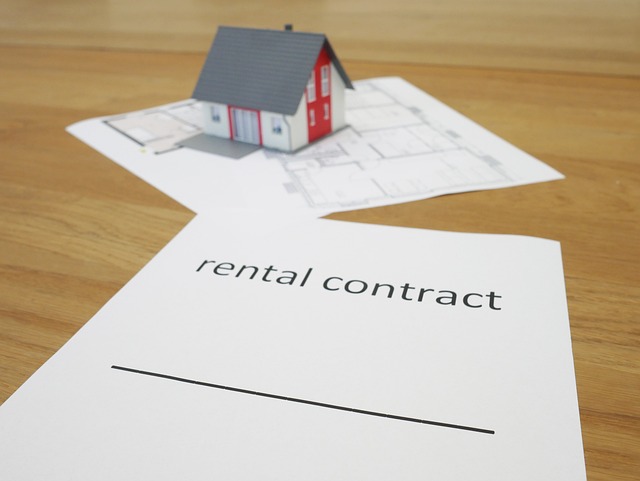Live in the Netherlands and speak English? Explore cleaning work opportunities near you.
Cleaning work in the Netherlands may provide steady roles in office buildings, residential facilities, and hospitality venues. If you speak English, opportunities might be available with companies looking for reliable staff to handle daily tasks and organized routines. Learn what’s typically expected, how shifts are structured, and where English may be enough to get started.

Where are cleaning roles most commonly found in the Netherlands?
Cleaning roles in the Netherlands are ubiquitous, with opportunities available across diverse settings. Urban centers like Amsterdam, Rotterdam, and The Hague offer a high concentration of cleaning jobs due to their dense populations and bustling business districts. However, smaller cities and towns also provide ample opportunities for cleaning professionals.
Common locations for cleaning roles include:
-
Office buildings and corporate facilities
-
Educational institutions (schools, universities)
-
Healthcare facilities (hospitals, clinics, nursing homes)
-
Hospitality venues (hotels, restaurants, cafes)
-
Retail spaces (shopping centers, supermarkets)
-
Residential complexes and private homes
-
Public transportation hubs (airports, train stations)
The diversity of these settings ensures that cleaning professionals can find work environments that suit their preferences and skills.
How do English speakers fit into Dutch cleaning teams?
While Dutch is the primary language in the Netherlands, many businesses and organizations operate in multilingual environments, especially in larger cities and international settings. This creates opportunities for English-speaking cleaning professionals to integrate into Dutch cleaning teams.
English speakers may find particular success in:
-
International companies with English as a working language
-
Hotels and tourist-oriented businesses
-
Educational institutions with international programs
-
Cleaning companies serving expatriate communities
It’s important to note that while English proficiency can be an asset, learning basic Dutch phrases related to cleaning tasks and workplace communication can significantly enhance job prospects and team integration.
What are typical work settings for cleaning jobs in offices?
Office cleaning is one of the most common and stable sectors within the cleaning industry in the Netherlands. These roles often involve working outside of regular business hours to minimize disruption to office operations.
Typical tasks in office cleaning include:
-
Vacuuming carpets and mopping hard floors
-
Dusting and wiping down surfaces (desks, shelves, equipment)
-
Cleaning and sanitizing bathrooms
-
Emptying trash bins and replacing liners
-
Cleaning kitchen areas and break rooms
-
Restocking supplies (toilet paper, hand soap, paper towels)
-
Window cleaning (interior and sometimes exterior)
Office cleaning roles may be part-time or full-time, with shifts often scheduled in the early morning or evening. Some positions may require working on weekends or holidays, depending on the specific needs of the office building or company.
What experience or reliability do employers usually value?
In the Dutch cleaning industry, employers typically prioritize reliability, attention to detail, and a strong work ethic over extensive prior experience. However, having some background in cleaning can be advantageous when seeking employment.
Key attributes valued by employers include:
-
Punctuality and dependability
-
Ability to work independently and as part of a team
-
Physical stamina and the ability to perform repetitive tasks
-
Attention to detail and thoroughness
-
Basic understanding of cleaning products and equipment
-
Flexibility with work schedules
-
Professional appearance and demeanor
-
Willingness to learn and follow instructions
For English speakers, demonstrating effective communication skills and the ability to understand and follow safety guidelines is crucial. Many employers provide on-the-job training, so a positive attitude and willingness to learn are often more important than extensive prior experience.
How are cleaning schedules organized in Dutch workplaces?
Cleaning schedules in Dutch workplaces are typically well-structured and efficiently organized to ensure consistent cleanliness and minimal disruption to regular business operations.
Common scheduling practices include:
-
Early morning shifts (before office hours)
-
Evening shifts (after office hours)
-
Night shifts (for 24-hour facilities or large office complexes)
-
Weekend rotations for deep cleaning tasks
-
Flexible part-time schedules to accommodate various cleaning needs
Many cleaning companies in the Netherlands use digital scheduling systems that allow employees to view their shifts, request time off, and communicate with supervisors easily. This technology-driven approach helps streamline operations and ensures clear communication between cleaning staff and management.
Cleaning tasks are often organized into daily, weekly, and monthly routines. For example:
-
Daily tasks might include vacuuming, trash removal, and bathroom cleaning
-
Weekly tasks could involve more thorough dusting and floor maintenance
-
Monthly tasks may include deep cleaning of carpets, windows, or other less frequently used areas
This structured approach helps maintain consistently high standards of cleanliness while allowing cleaning professionals to manage their time effectively.
In conclusion, the cleaning industry in the Netherlands offers diverse opportunities for English-speaking residents. With roles available across various sectors and locations, and a focus on reliability and work ethic over extensive experience, it’s an accessible field for those looking to enter the job market. By understanding the typical work settings, employer expectations, and scheduling practices, English speakers can position themselves effectively for cleaning jobs in the Dutch workplace environment.




